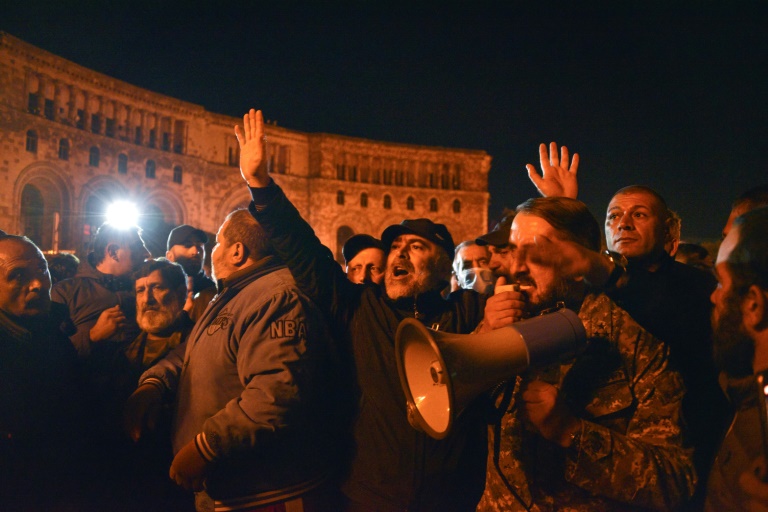Northern First Nation won’t extend ‘dry’ policy after ‘very negative aspects’ surface during brief experiment
A northern Manitoba First Nation’s brief experiment with a “dry” policy has come to a close with mixed opinions in the community and concerns over unintended side effects, such as driving people to consume more harmful substances.
Nisichawayasihk Cree Nation instituted a ban on alcohol and drugs from March 24 to April 11, in part so children in the community could have a good spring break, said Chief Angela Levasseur.
The community, about 65 kilometres west of Thompson, typically allows small amounts of alcohol and cannabis for personal use. It and other remote communities have also struggled with bootleggers and substance misuse. The latter is linked to intergenerational trauma that Levasseur says was exacerbated amid pandemic isolation.
Members of the community discussed the impact of the ban at a meeting last week. Opinions were mixed over how to proceed, said Levasseur.
“The conclusion we came to is that prohibition is not the answer,” she said.
“We need to continue to address the root causes of alcoholism and drug addiction. There’s a widespread need for healing, not just in our First Nation but in all First Nations communities. Historically, there has been a lot of harm done to First Nations people, and the impacts of colonization.”
Data provided by RCMP suggests calls for service dropped by about 23 per cent and calls involving “violent persons” dropped by 45 per cent, compared to two weeks prior to the ban.
There were 177 calls for service between March 9 and 22 relative to the 136 during the ban, and 29 calls including violent persons compared to 16 during the ban, according to RCMP.

Levasseur said leaders were happy with that decrease. There were also some “very negative aspects,” she said, including reports of some resorting to substances other than alcohol and drugs.
“Those include dangerous substances such as hand sanitizer and Lysol, and that is not what we want to see, because then we have people jeopardizing their health and others risking their lives to bring in bootleg substances through Ski-Doo trails,” Levasseur said.
“When you look at the totality of the factors involved, we’re still in a place where we feel like we can’t win.”
Levasseur repeated her calls on the federal and provincial government for more financial support for substance misuse and addictions services that are culturally appropriate.
A number of northern and remote Manitoba First Nations have been considering escalating enforcement of local restrictions or prohibition-style bylaws to curb bootlegging and substance misuse leaders say is connected to social and mental health challenges.
Nisichawayasihk has reverted back to its previous policy of allowing a 26-ounce bottle of alcohol, a case of beer or a box of wine upon entry through the community checkstop.
Outside help in Little Grand
Little Grand Rapids First Nation has had a similar policy in place since May of last year allowing people to bring in small amounts for personal use. It, too, has struggled with challenges similar to Nisichawayasihk.
Chief Oliver Owen said a bottle of bootleg alcohol that goes for about $20 in Winnipeg can fetch $200 in Little Grand Rapids, depending on demand and supply.

The fly-in community, about 270 kilometres northeast of Winnipeg, brought in reinforcements to help combat bootlegging ahead of the local winter road opening this year, said Owen.
Council enlisted nine staff with Anishinaabe Ambassadors Inc. to help. Council passed a bylaw giving the group, which is not a law enforcement agency, the power to search people in the community, said Owen.
He said the group, which also hired some locals, has assisted local First Nations safety officers and RCMP in patrolling on a 24/7 basis since January.
Owen, who also owns Amik Aviation, which operates in several remote communities, said the ambassadors also search people who arrive in Little Grand Rapids by air.

They’ve played a role in several seizures of contraband substances, including one seizure of 20 cases of whisky being brought in via the winter road, he said.
“It worked out pretty good because they stopped a lot of booze coming into the community,” he said. “I think it made a difference.”
Resources lacking locally: chief
With the ice melting and the winter road no longer in use, bootlegging becomes more challenging.
Owen said having a vendor in the community that had limited hours and was tightly controlled could also help. He feels people might consume and spend less on alcohol than they would through bootleggers.
Owen said there is also a lack of addictions-focused treatment in the isolated community.
Leadership has been eyeing a fishing lodge across the lake from the community. They would like to convert it into an addictions centre with traditional programming.
Owen said last year they submitted a proposal to the federal government seeking $5 million for that project but haven’t yet heard back.
For now, when someone asks for help they must leave their community behind for treatment elsewhere.
“There’s nothing in the community for people to get help,” Owen said.
If you or someone you know is struggling, here’s where to get help:
As well, a national Indian Residential School Crisis Line is available to provide support for survivors and those affected. People can access emotional and crisis referral services by calling the 24-hour service at 1-866-925-4419.
Mental health counselling and crisis support is also available 24 hours a day, seven days a week through the Hope for Wellness hotline at 1-855-242-3310 or by online chat.

